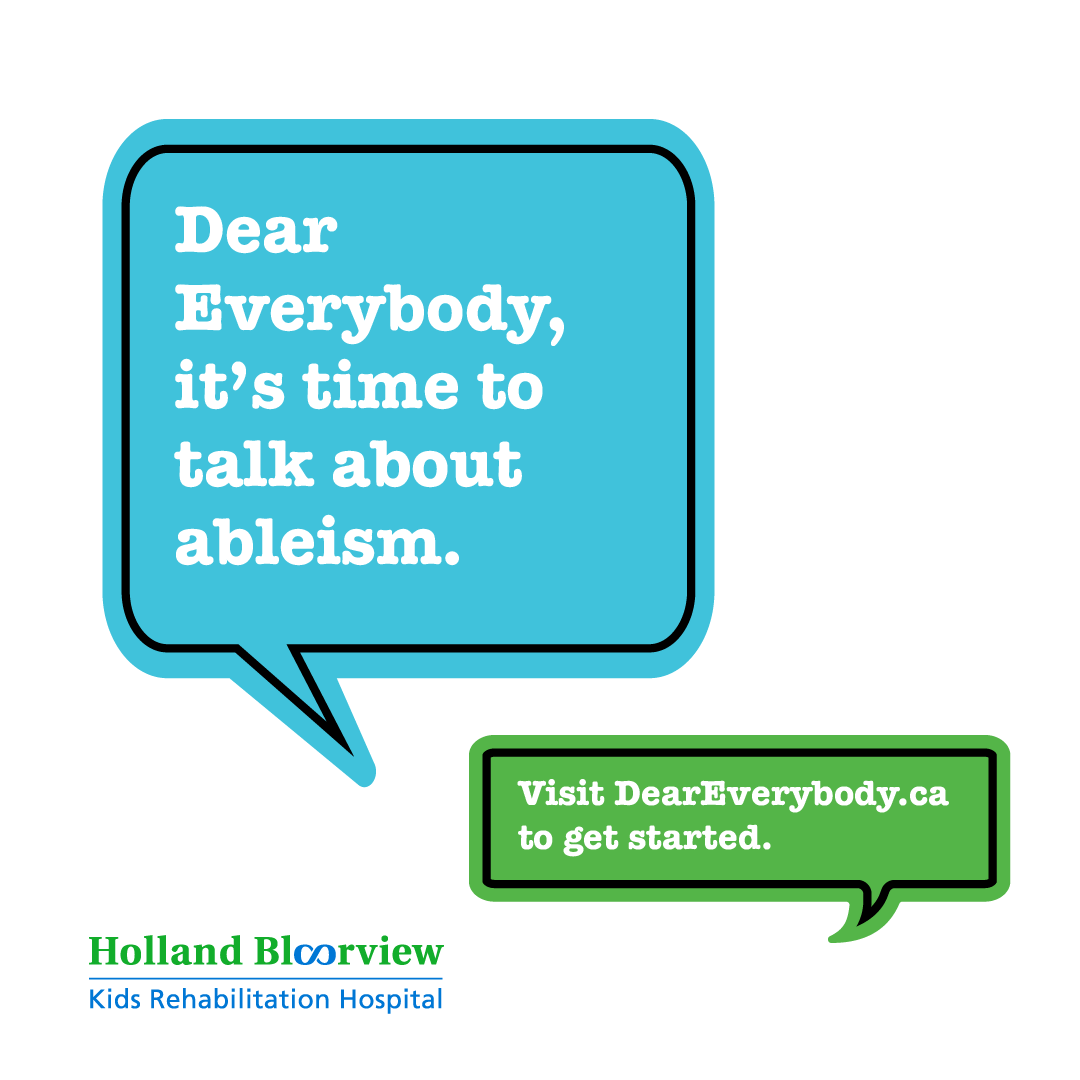Let’s talk about…
Ableism in Conversation
While she might only be 10 years old, Gavi is already planning to become a criminal prosecutor when she grows up. But before she does, she’s looking forward to Grade 6, and spending time on her favourite activities, like painting, reading and swimming.
Another one of Gavi’s favourite activities is volunteering as an ambassador for Holland Bloorview, where she attended the Bloorview School Authority for Kindergarten, and received services like physio- and speech therapy.
Gavi has nemaline myopathy, a condition that makes her muscles weaker, so she uses a power wheelchair and has a trach that helps her breathe. Because of this, people who don’t know her well may have a hard time understanding her voice—but that doesn’t mean she doesn’t have a lot to say.
What does ableism mean to you?
Without ableism, there is no stigma towards people with disabilities, and people with disabilities are not treated like objects, they’re just treated like people.
Have you ever experienced ableism?
Some people pretend they can understand me when, really, they can’t. And sometimes, people laugh at my voice, and that makes me feel sad.
Also, once I was in a restaurant and someone came up to me and said: “You’re the prettiest girl in the restaurant.” That felt patronizing because I feel like the only reason, they said that to me was because I have a disability. It also makes me feel like people think I have a bad life or I’m sad because I have a disability. Having a disability can be annoying, but it can also open up a lot of opportunities—like [participating in the Dear Everybody campaign], for example.
How would you like people to communicate with you?
I just want people to talk to me like they would talk to anybody. And I don’t want people to pretend to understand me. If they can’t understand me, I can write it down, or they can tell me what I should do to be better understood.
Why are campaigns like Dear Everybody so important?
Sometimes people cut me off, or don’t give me enough time to talk. That makes me feel like I’m not valued, that people don’t care what I have to say, or that people think I don’t mean anything. I want people to hear my stories, and realize that ableism happens and that they can do something about it.
What’s your advice to people who are just starting to learn about ableism?
Talk to people with disabilities and get to know them. People with disabilities have so much to say and so much to contribute. My voice doesn’t stop me from having a lot to say
